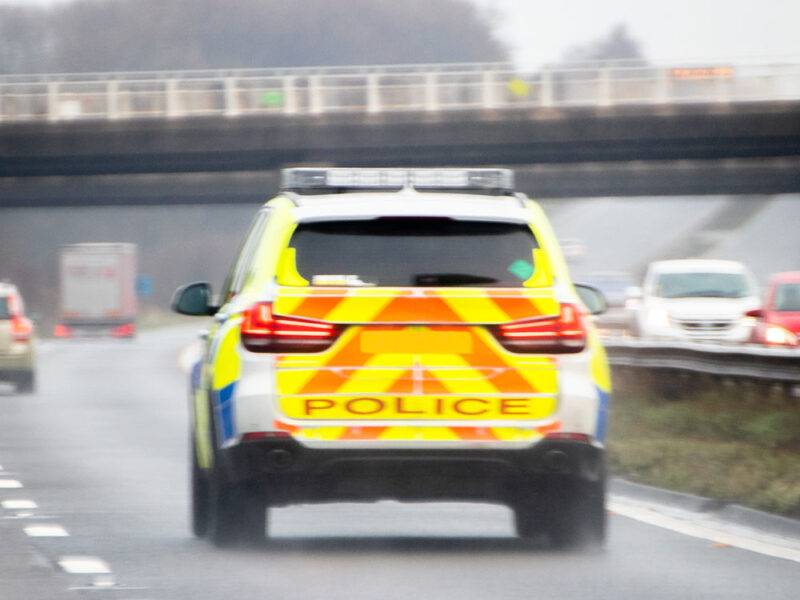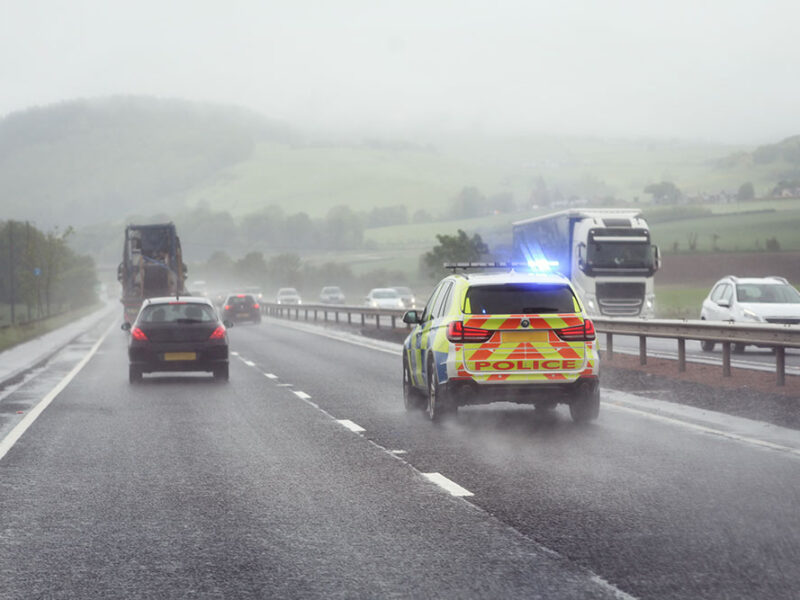Government Guidance on this issue is worth reading and recommended by Senior Traffic Commissioner, Mr. Richard Turfitt. The key message is to think security as well as safety.
The Government published guidance (click here for more information) for operators of goods vehicles (from a small van to a large lorry) is designed to achieve the following:
- help prevent acts of terrorism;
- help protect your organisation's reputation;
- demonstrate your commitment to Corporate Social Responsibility;
- help to improve security culture within your business; and
- help to reduce crime.
The Guidance covers security measures that operators should consider implementing for:
- building and embedding a positive security culture and behaviours;
- personnel security;
- operating centres and maintenance facilities;
- transport managers and drivers;
- vehicles; and
- general security issues.
When a vehicle is used intentionally as a weapon in order to injure or kill someone it is known as a Vehicle as a Weapon ("VAW") attack and as the Guidance notes, it will immediately be obvious that this type of crime is widely accessible given the number of goods vehicles on the roads every day.
The Guidance itself is well worth reading, but those short of time will wish to know what the government actually recommends, especially in terms of guidance that operators can provide to their drivers which might avoid a VAW catastrophe. Helpfully, the Guidance includes a list of security tips for goods vehicle drivers:
- Avoid talking about loads or routes with unauthorised persons (including over radios and telephones). Do not post information about your route or location on social media, be aware of your 'digital footprint', and take care to avoid unwitting disclosure of route/location through mobile phone security settings and geolocation of pictures. Discuss high risk routes with your transport office;
- Lock and secure your vehicle whenever you leave the cab and keep the keys secure, including when unloading and loading, always follow company security policies and instructions;
- Carry out visual walk around checks when leaving and returning to the vehicle to make sure it has not been tampered with. Report any irregularity in loading, locking, sealing or documentation to your company;
- When conducting walk around checks, think Security as well as Safety;
- Never carry goods for anyone, other than the authorised load;
- If you are forced to change your route, inform your Transport Office immediately;
- If someone is acting suspiciously or something 'doesn't feel right' either at the depot or on the road, report it to ACT, call 0800 789 321 and contact your company;
- Do not allow unauthorised passengers into the cab;
- Keep your phone fully charged at all times. Store important phone numbers;
- Be mindful of your personal security. Keep ID documentation and wallets secure and out of sight; and
- Beware of attempts to deceive, such as by bogus Police and DVSA officers - stay vigilant always.
Reading the items on this list one could be forgiven for dismissing it as little more than common sense, but when one reviews an incident and works backwards it may well be that if one or more of the action points recommended above had been taken, then the theft of a vehicle could have been prevented. As well as being a checklist of sorts, the recommendations reflect a mindset; to be aware, and not to act in a way that can increase the risks that you will become a target.
The Guidance also includes advice for what to do if a vehicle is taken, stating that:
If your vehicle is stolen call 999 and alert the call handler to the following information:
- circumstances of the vehicle being stolen;
- description of the vehicle including company name, registration details, aerial roof markings and any tracking software fitted in the vehicle; and
- if you suspect that the vehicle has been stolen for a terrorist attack then make sure this is made clear to the call handler.
Drivers should also immediately alert the company who will have procedures in place for stolen vehicles.
If you have a driver or a vehicle involved in a theft or a VAW incident, call us now on 01279 818280
© Richard Pelly, September 2019

More News and Insight

Abnormal Loads – Calls for Changes to Law for Abnormal Loads Needing Police Escorts
Recently in the trade press there have been articles reporting calls from the UK’s Heavy Transport Association (HTA) for the law to be changed regarding police escorting of abnormal loads….

DVLA Confirms New Rules for Professional Drivers Living with Diabetes
From Friday 7th November 2025 the rules were changed to allow diabetic drivers of PSV’s and HGV’s to monitor their glucose levels using Continuous Glucose Monitoring Systems….

Carrying Your Own: Horses to Widgets? Do you Need an O Licence?
The DVSA recently released a press release about the rules for transporting horses in horse boxes and trailers following an update on the guidance about using a tachograph in the vehicle being used to transport the animals…

The Senior Traffic Commissioner’s Statutory Guidance
The value of The Statutory Guidance Documents and the importance to operators, nominated transport managers and other professionals involved in the operation and driving of large commercial vehicles cannot be overstated…

Walkaround Checks – Where Road Safety Starts
Every day, often before the sun is above the horizon, hundreds of thousands of commercial vehicles are started up by their drivers and then they head out on to the UK’s road network to transport goods or passengers from one point to another, often with demanding time constraints thrown into the mix…

Traffic Commissioner’s Annual Report 2024/25: “Don’t Look Back in Anger”
Time has flown by and once again we find that the schools are back after the long summer break and the Office of the Traffic Commissioner has issued its annual report to the Secretary of State, providing a review of the year…

An Apple a Day to Keep the DVLA Away – A review of the DVLA’s Rules on Health Checks for Professional Drivers
There has been some discussion in the industry trade press recently that has highlighted proposed changes to how the disease of diabetes is monitored in professional drivers by the DVLA. One article in RouteOne Magazine stated that…

Light Goods – Heavyweight Industry: The DVSA’s New LGV Strategy
While relatively small in overall physical size light goods vehicles (LGVs) are now a large part of the UK road transport industry. There are currently estimated to be over 5.1 million light goods vehicles on UK roads today…

Employment Law Update – A tale like Scylla & Charybdis
Operators currently face their own real time nightmare in the form of a modern day version of the Greek mythological tale of Scylla and Charybdis (where sailors faced a narrow strait through which they had to pass which had a monster on one side and a whirlpool on the other!)…

Labour Government – Employment Rights Bill – What Will It Mean for Transport Businesses?
In October 2024 the Deputy Prime Minister, Angela Rayner set out her intention to reform the employment rights held by employees in the UK. In a press release issued at the time she is quoted a saying…

Revisiting the DVSA’s Guide to Maintaining Roadworthiness
In April 2025 the Driver & Vehicle Standards Agency (DVSA) issued the latest edition of its Guide to Maintaining Roadworthiness.

The Wheels on the Bus go Round & Round….but how do they Stop?
At the tail end of 2024 a Public Inquiry was held in front of Traffic Commissioner Kevin Rooney where the subject of brake maintenance practices was called into question…
